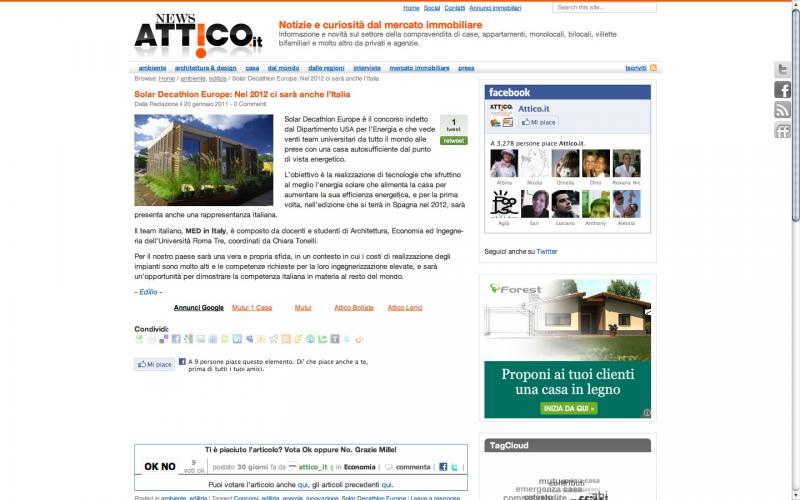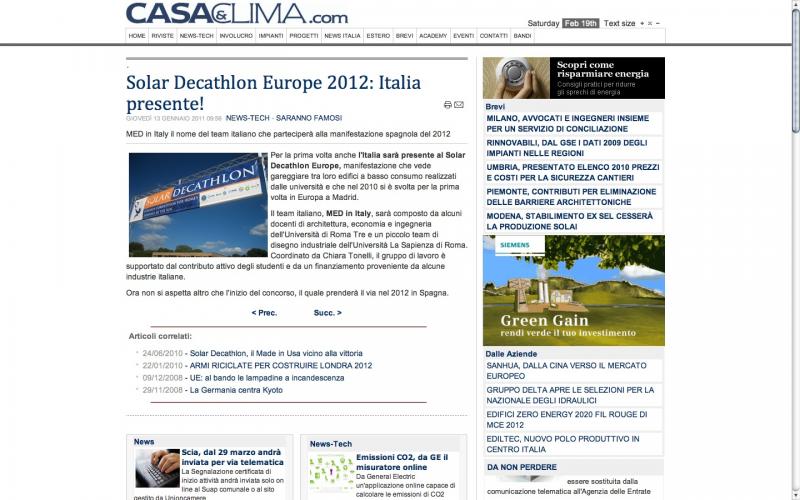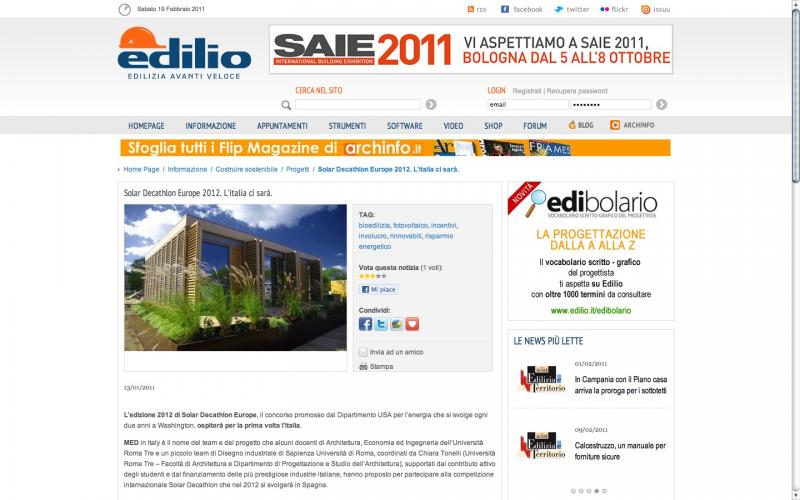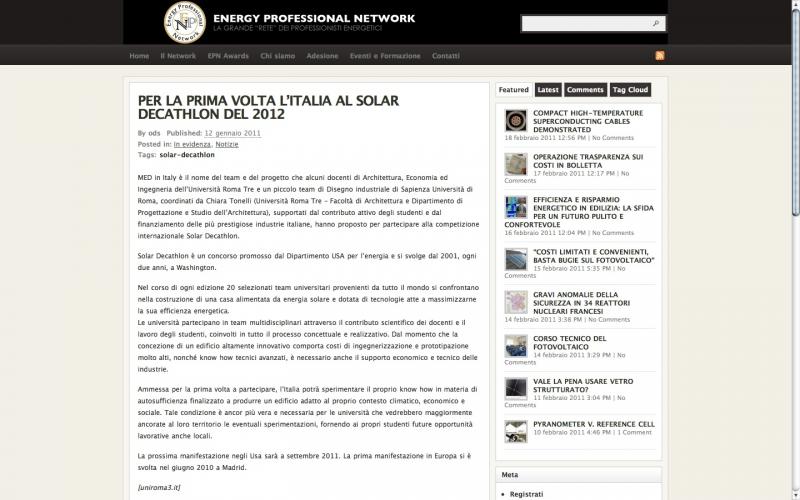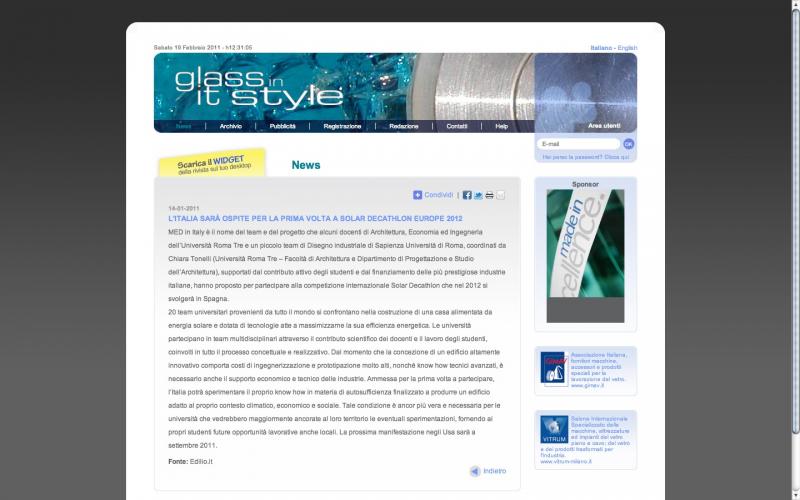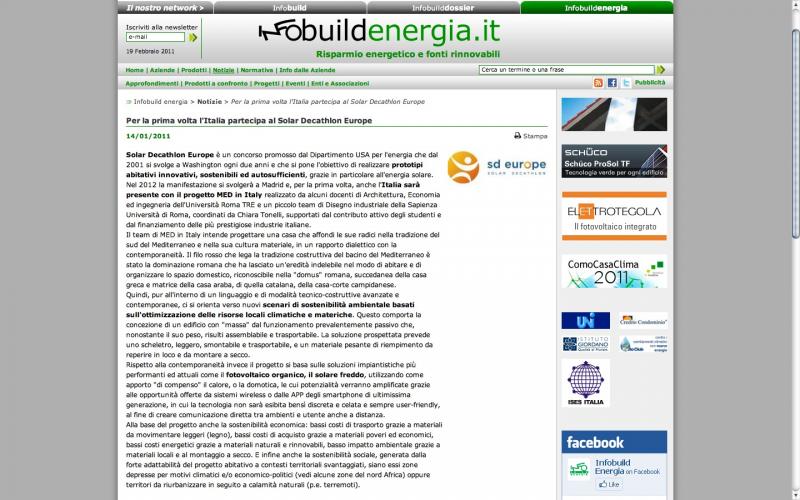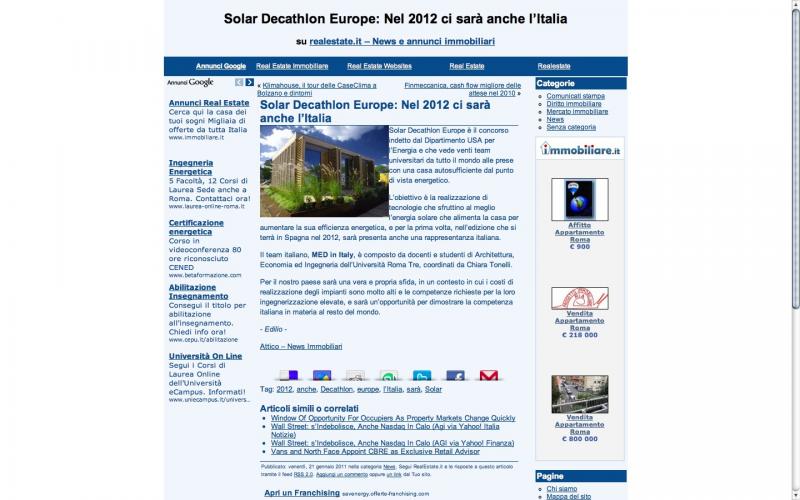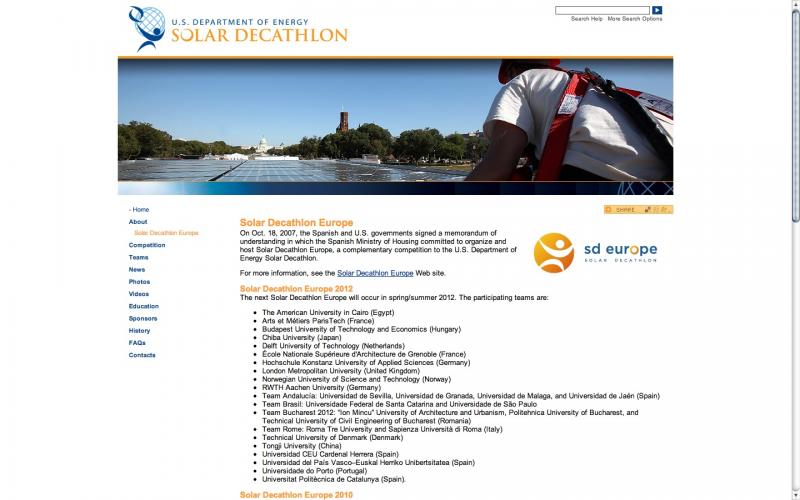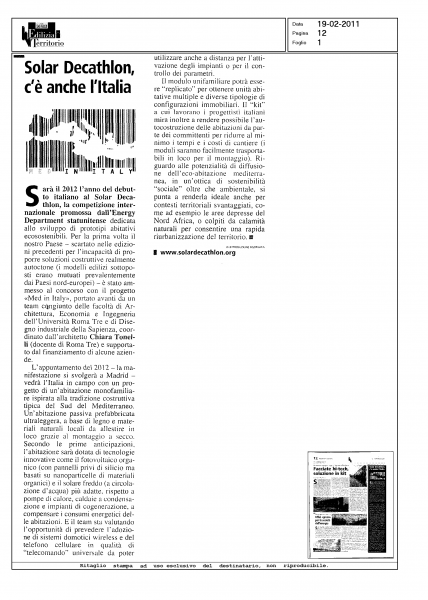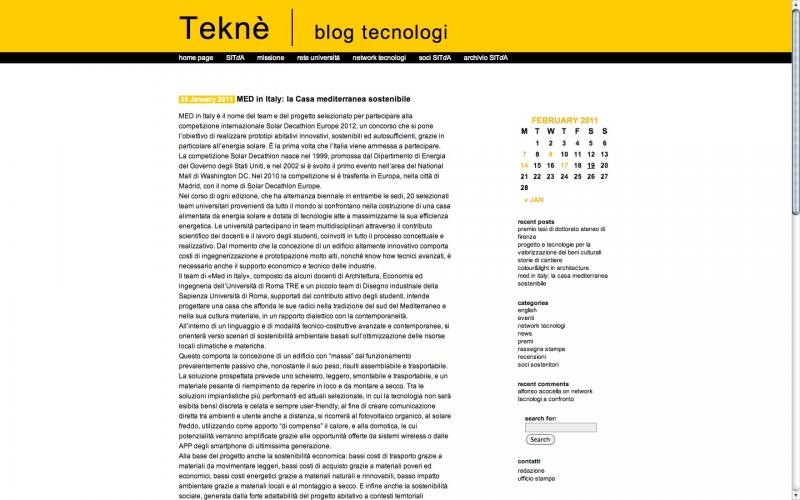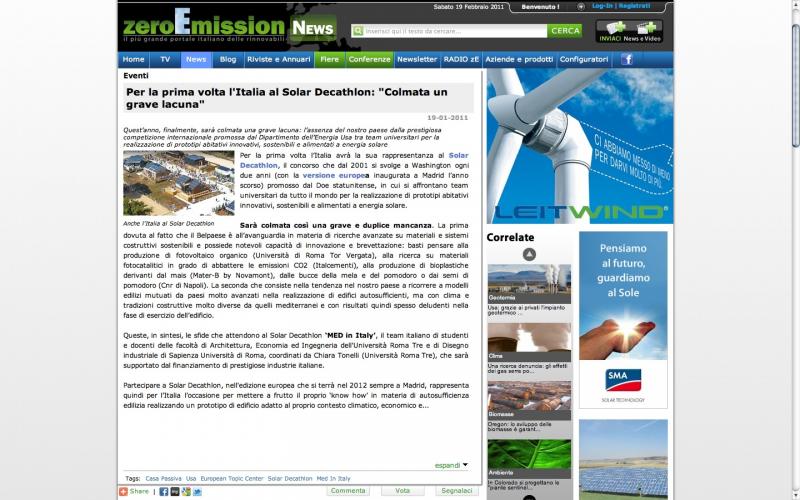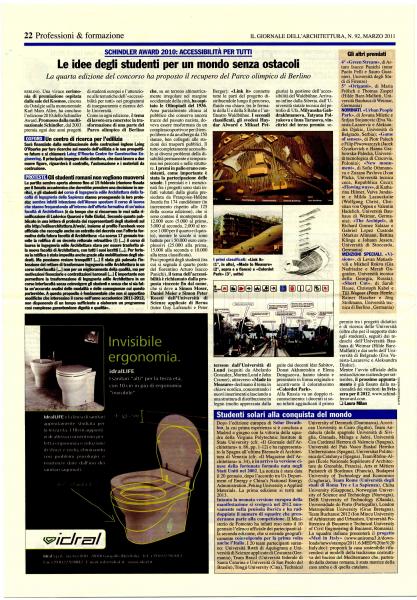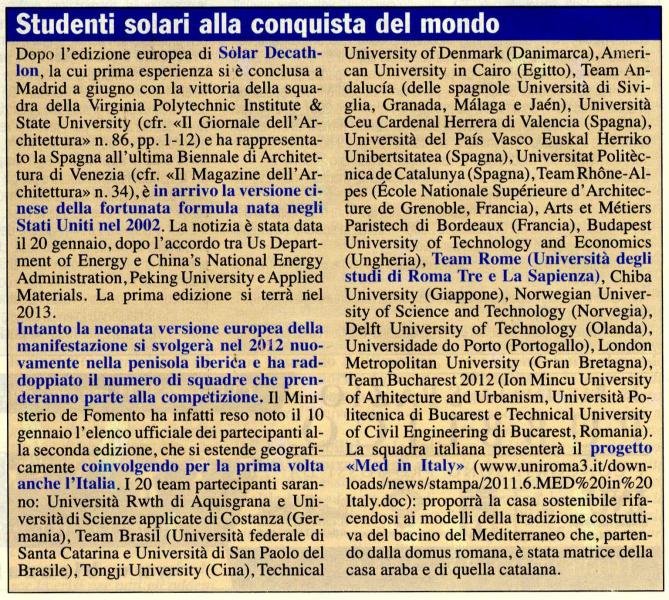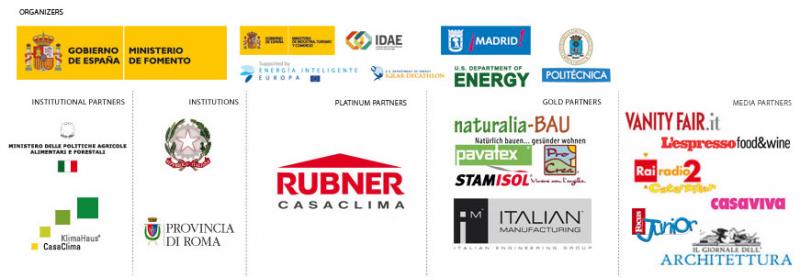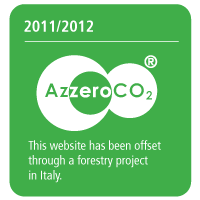DESIGN-BUILD SOLAR - Solar Decathlon Europe announces the 2012 teams - 11 Jan 2011
Solar Decathlon Europe 2012 (SDE2012) has selected the 20 participating teams in next year’s solar house competition. With universities from 15 countries and four continents, SDE2012 will be the most international edition to date.
Beatriz Corredor, Secretary of State for Housing and Urban Development of Ministry of Public Works said, "the remarkable increase in both participating countries and universities who applied to compete in SDE 2012 edition, shows that Spain has become a focal point in research and use of renewable energy in buildings and energy efficiency implementation in homes. We congratulate the 20 selected teams and hope to see as in the 2010 edition ‘research and development in pure state’ ".
The following teams will participate in 2012:
- RWTH AACHENUNIVERSITY, of Germany
- UNIVERSITY OF APPLIED SCIENCESKONSTANZ
- TEAM BRASIL, of Brazil
- TONGJI UNIVERSITY, of China
- TECHNICAL UNIVERSITY OF DENMARK, of Denmark
- AMERICAN UNIVERSITY IN CAIRO, of Egypt
- TEAM ANDALUCÍA, of Spain
- UNIVERSIDAD CEU CARDENAL HERRERA DE VALENCIA, of Spain
- UNIVERSIDAD DEL PAÍS VASCO, EUSKAL HERRIKO UNIBERTSITATEA, of Spain
- UNIVERSITAT POLITÈCNICA DE CATALUNYA(UPC), of Spain
- TEAM RHÔNE-ALPES lead by ÉCOLE NATIONALE SUPÉRIEURE D´ARCHITECTURE DE GRENOBLE, of France
- ARTS ET MÉTIERS PARISTECH BORDEAUX, of France
- BUDAPEST UNIVERSITY OF TECHNOLOGY AND ECONOMICS, of Hungary
- TEAM ROME, of Italy (Formed by Università degli studi di Roma TRE and Sapienza Università di Roma
- CHIBA UNIVERSITY, of Japan
- NORWEGIAN UNIVERSITY OF SCIENCE AND TECHNOLOGY, of Norway
- DELFT UNIVERSITY OF TECHNOLOGY, of Netherlands
- UNIVERSIDADE DO PORTO, of Portugal
- LONDON METROPOLITAN UNIVERSITY, of United Kingdom
- TEAM BUCHAREST 2012, of Romania (Formed by "Ion Mincu" University of Arhitecture and
University Politehnica of Bucharest
Javier Serra, Deputy Director for Innovation and Quality in Building of the Secretary of State for Housing and Urban Development in the Ministry Public Works, explained that "SDE 2012 goes a step further by becoming the most international event ever held in this type of competition. We have managed to establish this competition in Europe, similar to the USA (Department of Energy), edition of the competition become the most prestigious meeting of solar house designs".
Sergio Vega, Project Manager of Solar Decathlon Europe said, “The high level of the selected projects for 2012 assures that major advances will be made in a shorter period of time in the area of efficient energy housing. The participating teams will develop, within almost two years of competition, true solar homes, as seen in the last competition in June 2010 in Madrid, and demonstrate to the international market that it is possible to compete with these technologies".
The objective of the competition, in addition to generating new knowledge, is to create awareness among the general public on rational use of energy.
Solar Decathlon Europe is organized by the Secretary of State for Housing and Urban Development at the Spanish Ministry of Public Works with the collaboration of Universidad Politécnica de Madrid and the support of the US Department of Energy. In addition, SDE counts with the collaboration of the Madrid City Council and Spanish Energy Saving Energy Agency IDAE, and the sponsorship of Saint-Gobain (main sponsor), Schneider Electric, Rockwool, Kömmerling and FCC.
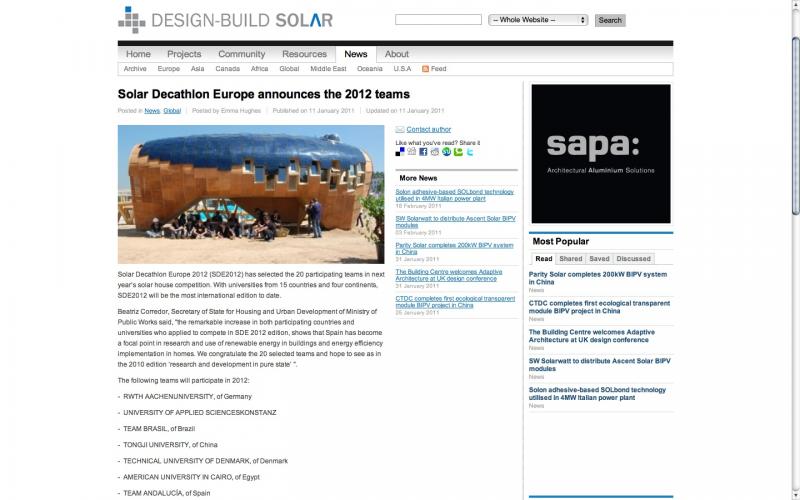
http://www.design-buildsolar.com/news/solar_decathlon_europe_announces_the_2012_teams547/
back to press review


















